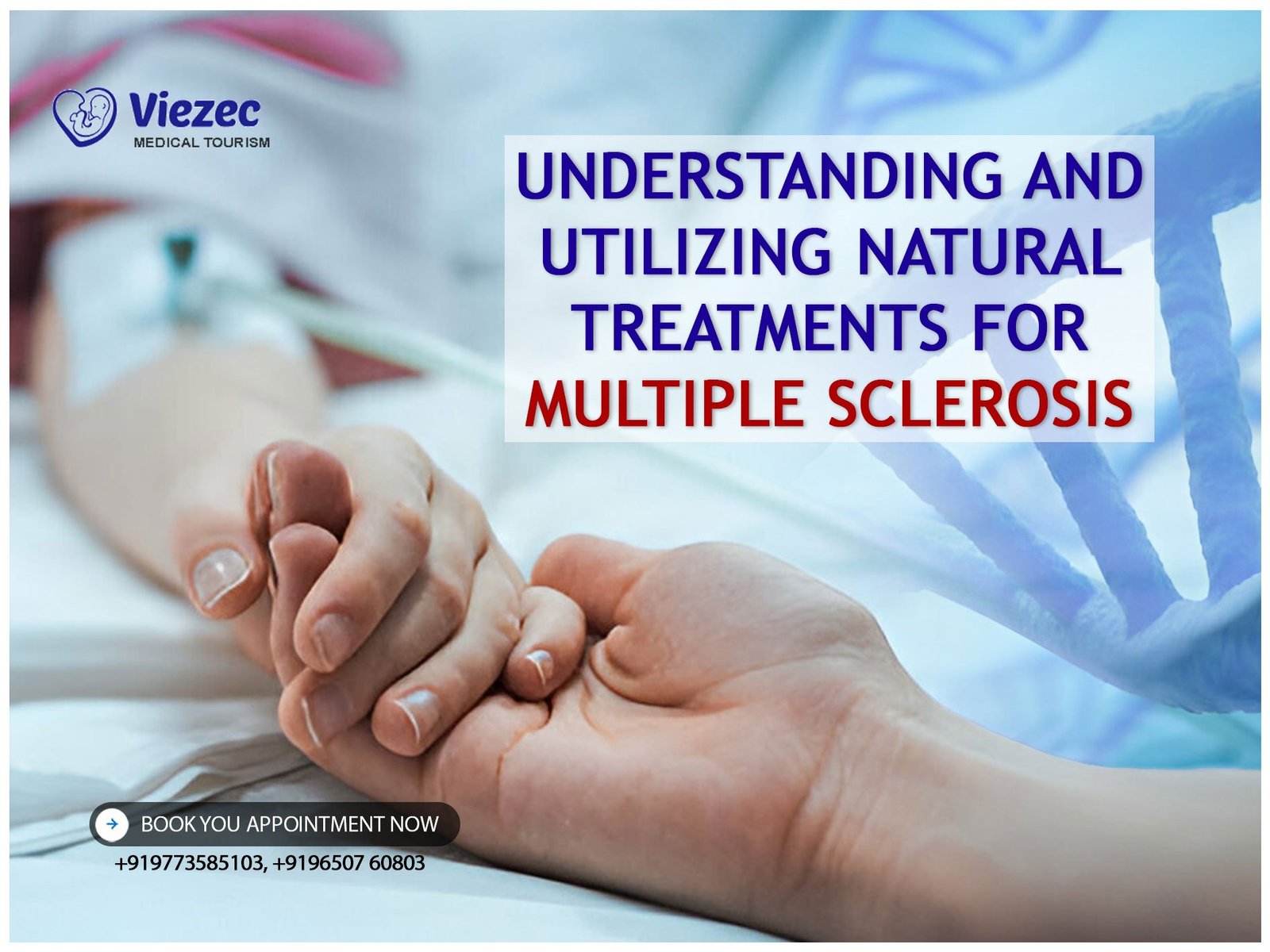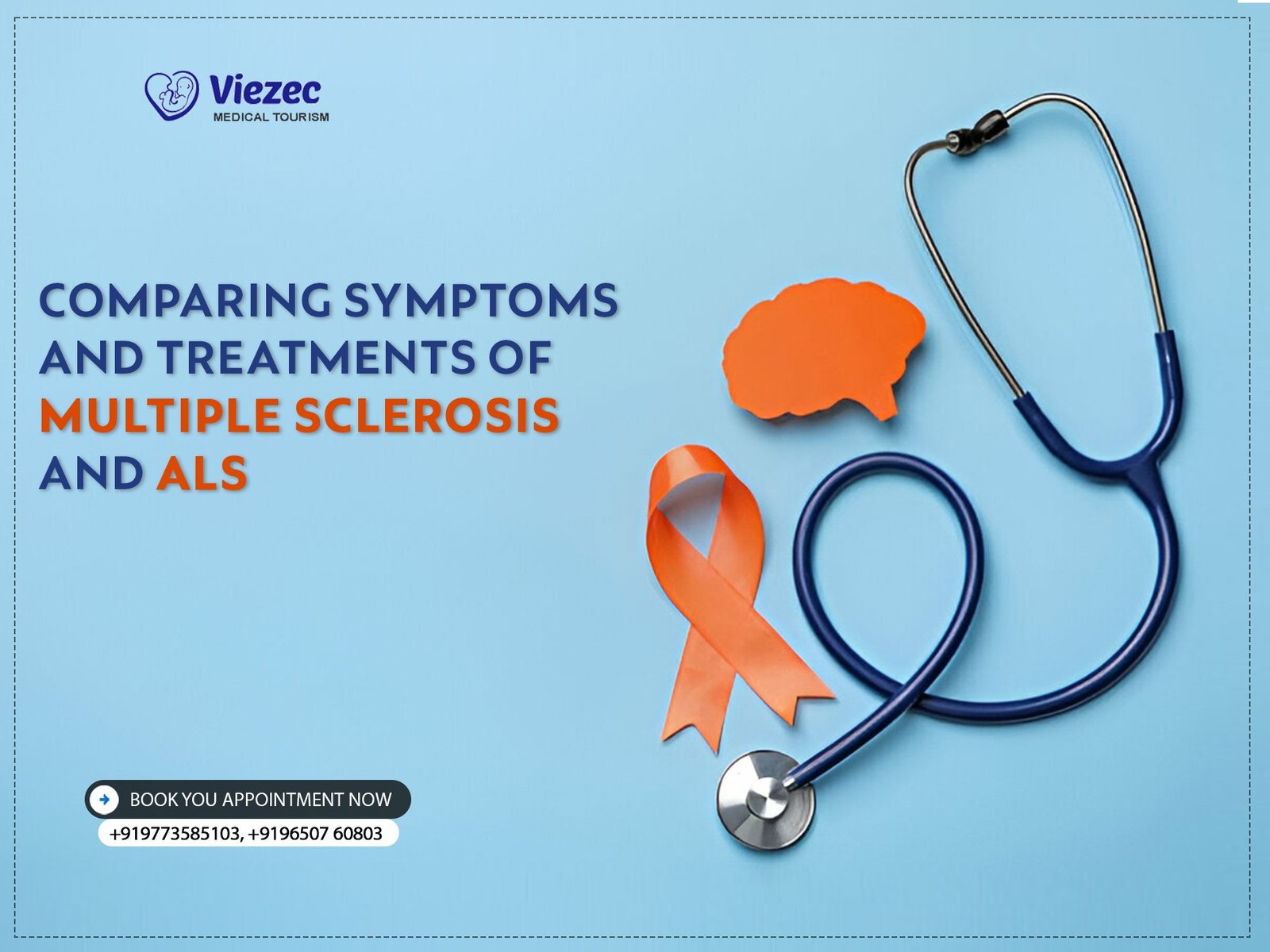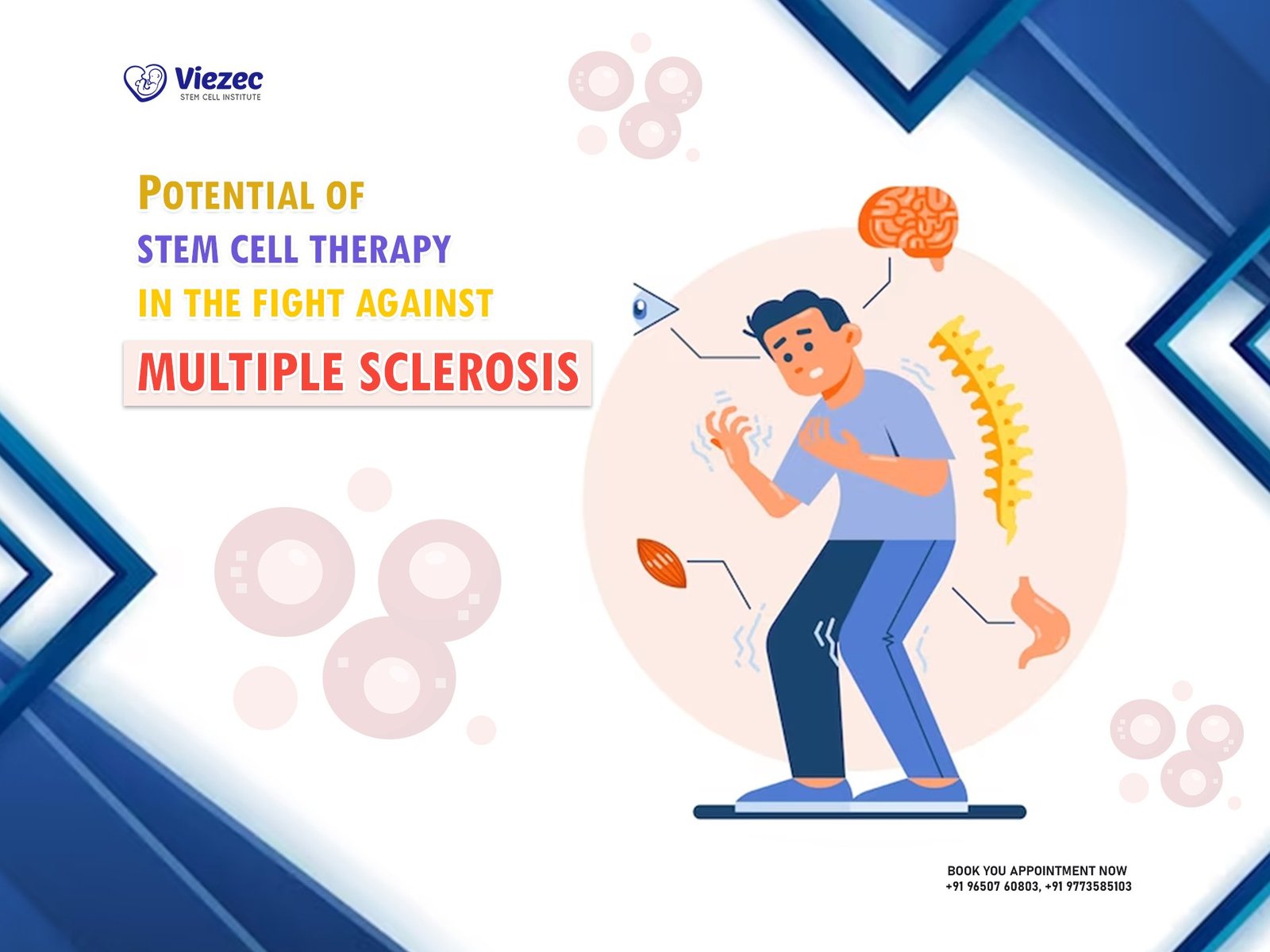Multiple Sclerosis (MS) is a chronic autoimmune disorder characterized by the immune system’s attack on the central nervous system (CNS), specifically targeting the myelin sheath surrounding nerve fibers. This attack leads to inflammation, demyelination, and ultimately, neurological dysfunction. MS is unpredictable in nature, with symptoms ranging from mild to severe and varying widely among individuals.
Understanding the Pathophysiology of MS
The pathophysiology of MS involves complex interactions between the immune system, genetic factors, and environmental triggers. Immune cells, particularly T cells, infiltrate the CNS and initiate an inflammatory response against myelin proteins, resulting in demyelination and neuronal damage. Over time, this process can lead to the formation of scar tissue (sclerosis), further impairing nerve function.
Current Treatment Approaches and Limitations
Current treatment strategies for MS primarily focus on managing symptoms, reducing inflammation, and slowing disease progression. Disease-modifying therapies (DMTs) aim to modulate the immune system’s activity and prevent relapses. However, these treatments have limitations, including potential side effects, incomplete efficacy, and accessibility issues for some patients.
Role of Natural Treatments in Managing MS
Exploring the Efficacy of Natural Remedies
Natural treatments for MS encompass a wide range of modalities, including dietary supplements, herbal remedies, mind-body techniques, and alternative therapies. While scientific evidence supporting their efficacy varies, many individuals with MS report benefits such as symptom relief, improved quality of life, and reduced reliance on conventional medications. However, it’s essential to approach these treatments with caution and consult healthcare professionals for guidance.
Integrative Medicine Approaches for MS Management
Integrative medicine combines conventional and complementary therapies to address the holistic needs of MS patients. By incorporating evidence-based natural treatments alongside traditional medical interventions, integrative approaches aim to optimize symptom management, enhance well-being, and empower patients to actively participate in their care. This collaborative approach acknowledges the importance of personalized treatment plans tailored to individual preferences and needs.
Benefits and Risks of Natural Treatments
Natural treatments offer several potential benefits for MS patients, including symptom relief, improved immune function, and overall well-being. Additionally, many natural remedies have fewer side effects compared to pharmaceutical medications, making them appealing alternatives or adjuncts to conventional therapy. However, it’s crucial to recognize that not all natural treatments are safe or effective, and some may interact with medications or exacerbate existing health conditions. Therefore, informed decision-making and close monitoring are essential when incorporating natural treatments into MS management plans.
Nutritional Strategies for MS Management
The Impact of Diet on MS Progression
Mounting evidence suggests that diet plays a significant role in MS progression and symptom management. Certain dietary patterns, such as the Mediterranean diet or low-fat, plant-based diets, have been associated with reduced disease activity and improved outcomes in MS patients. Conversely, diets high in saturated fats, processed foods, and sugar may exacerbate inflammation and contribute to disease progression. Nutritional interventions aim to optimize immune function, promote neuroprotection, and support overall health in individuals with MS.
Essential Nutrients and Supplements for MS Patients
Several nutrients and dietary supplements have shown promise in managing MS symptoms and supporting neurological health. These include vitamin D, omega-3 fatty acids, antioxidants, and probiotics, among others. While research on specific supplements varies in quality and consistency, some individuals may benefit from supplementation under the guidance of healthcare professionals. However, it’s essential to obtain nutrients primarily through a balanced diet whenever possible and to avoid excessive supplementation, which can have adverse effects.
Designing a Personalized Diet Plan
Creating a personalized diet plan involves considering individual preferences, nutritional needs, and MS-related symptoms. A dietitian or nutritionist can help MS patients identify dietary triggers, optimize nutrient intake, and make sustainable lifestyle changes. Emphasizing whole, nutrient-dense foods such as fruits, vegetables, lean proteins, and healthy fats can support immune function, gut health, and overall well-being. Additionally, mindful eating practices and portion control can help manage weight and prevent comorbidities associated with MS.
Exercise and Physical Therapy for MS Patients
The Importance of Physical Activity in MS Management
Regular exercise plays a crucial role in managing MS symptoms, improving mobility, and enhancing quality of life. Physical activity helps maintain muscle strength, flexibility, and cardiovascular health, which are essential for managing MS-related fatigue, spasticity, and balance problems. Additionally, exercise promotes neuroplasticity and may slow disease progression by stimulating neuronal repair and regeneration. Incorporating a variety of exercises, including aerobic, strength training, and flexibility exercises, can address different aspects of physical function and promote overall well-being.
Tailoring Exercise Programs for MS Symptoms
Exercise programs should be tailored to individual abilities, preferences, and symptomatology in MS patients. Low-impact activities such as swimming, cycling, and yoga can be particularly beneficial for individuals with mobility impairments or joint pain. Adaptive equipment, assistive devices, and modifications to exercise routines can accommodate varying levels of function and ensure safety during physical activity. Additionally, engaging in regular physical therapy sessions can help address specific impairments, improve functional capacity, and enhance independence in daily activities.
Incorporating Yoga and Mindfulness Practices
Yoga and mindfulness-based practices offer holistic approaches to managing MS symptoms and promoting emotional well-being. These mind-body techniques combine physical postures, breathwork, and meditation to reduce stress, improve relaxation, and enhance self-awareness. Studies have shown that yoga can alleviate fatigue, pain, and depression in MS patients while improving physical function and quality of life. Mindfulness practices, such as meditation and guided imagery, can also help individuals cope with the emotional challenges of living with a chronic illness and cultivate resilience in the face of adversity.
Herbal and Botanical Therapies for MS
Traditional Herbal Remedies for MS Symptom Relief
Traditional herbal remedies have been used for centuries to alleviate MS symptoms and improve overall health and well-being. Common herbs and botanicals used in MS management include ginkgo biloba, turmeric, ginger, and cannabis. These natural remedies may exert anti-inflammatory, antioxidant, and neuroprotective effects, which could help mitigate disease activity and enhance symptom control. However, evidence supporting their efficacy in MS is limited, and further research is needed to establish their safety and effectiveness in clinical settings.
Examining the Scientific Evidence Behind Herbal Treatments
While some herbal remedies show promise in preclinical studies or anecdotal reports, rigorous scientific evidence supporting their use in MS management is lacking. Clinical trials investigating the efficacy of herbal treatments often yield conflicting results or suffer from methodological limitations, making it challenging to draw definitive conclusions. Moreover, the quality and standardization of herbal products vary widely, leading to inconsistencies in dosing and formulation. Therefore, caution should be exercised when considering herbal therapies, and healthcare providers should be consulted for guidance on their appropriate use.
Safety Considerations and Potential Interactions
Herbal therapies carry potential risks and side effects, including allergic reactions, gastrointestinal disturbances, and drug interactions. Many herbal supplements are not regulated by government agencies, leading to concerns about product quality, purity, and contamination. Additionally, certain herbs may interact with prescription medications commonly used to manage MS symptoms, such as disease-modifying therapies or symptomatic treatments. Patients should disclose all herbal supplements they are taking to their healthcare providers to avoid potential adverse effects and ensure safe and effective treatment outcomes.
Mind-Body Techniques in MS Management
Stress Management Strategies for MS Patients
Managing stress is essential for MS patients, as psychological factors can influence disease activity and symptom severity. Stress-reduction techniques such as relaxation exercises, deep breathing, and guided imagery can help alleviate anxiety, depression, and fatigue commonly associated with MS. Additionally, engaging in enjoyable activities, social support networks, and counseling or therapy sessions can provide emotional support and coping mechanisms for dealing with the challenges of living with a chronic illness.
Cognitive Behavioral Therapy for Emotional Well-being
Cognitive Behavioral Therapy (CBT) is a structured psychotherapy approach that focuses on identifying and modifying negative thought patterns and behaviors. In MS patients, CBT can help challenge distorted beliefs, improve coping skills, and enhance problem-solving abilities. By addressing maladaptive coping strategies and promoting adaptive coping mechanisms, CBT aims to reduce psychological distress and improve overall emotional well-being. Integrating CBT into MS management plans can complement pharmacological interventions and promote resilience in the face of adversity.
Mindfulness-Based Interventions for Symptom Control
Mindfulness-based interventions, such as mindfulness meditation and mindfulness-based stress reduction (MBSR), offer practical strategies for managing MS symptoms and enhancing quality of life. These practices cultivate present-moment awareness, acceptance, and non-judgmental attention to one’s thoughts, feelings, and sensations. By fostering mindfulness, individuals with MS can develop greater resilience to pain, fatigue, and emotional distress while promoting self-compassion and self-care. Mindfulness-based interventions can be integrated into daily routines, support groups, or formal programs to facilitate symptom management and improve overall well-being.
Stem Cell Therapy: Innovations in MS Treatment
Understanding the Role of Stem Cells in MS Therapy
Stem cell therapy holds promise as a potential treatment for MS by targeting immune dysregulation and promoting tissue repair and regeneration. Mesenchymal stem cells (MSCs), in particular, have immunomodulatory properties and the ability to differentiate into various cell types, making them attractive candidates for MS therapy. By modulating the immune response, promoting neuroprotection, and stimulating endogenous repair mechanisms, stem cell therapy aims to halt disease progression and restore neurological function in MS patients.
Different Approaches to Stem Cell Transplantation
Stem cell transplantation techniques vary in their approach and methodology, including autologous hematopoietic stem cell transplantation (AHSCT), allogeneic stem cell transplantation, and mesenchymal stem cell therapy. AHSCT involves harvesting and reinfusing the patient’s own stem cells following high-dose chemotherapy to reset the immune system and suppress autoimmune activity. Allogeneic transplantation utilizes stem cells from a compatible donor to achieve similar immunomodulatory effects. MSC therapy involves the administration of exogenous MSCs to modulate immune function and promote tissue repair.
Potential Benefits and Risks of Stem Cell Treatment
Stem cell therapy offers potential benefits for MS patients, including reduced disease activity, improved neurological function, and enhanced quality of life. Clinical trials and observational studies have shown promising results, with some patients experiencing long-term remission or stabilization of their disease. However, stem cell transplantation carries inherent risks, including infection, graft-versus-host disease, and treatment-related mortality. Additionally, the long-term safety and efficacy of stem cell therapy for MS remain uncertain, necessitating further research and careful consideration of individual patient factors.
Alternative Therapies and Complementary Medicine
Acupuncture and Acupressure for MS Symptom Relief
Acupuncture and acupressure are traditional Chinese medicine techniques that involve stimulating specific acupoints on the body to restore balance and promote healing. In MS patients, acupuncture and acupressure may help alleviate pain, fatigue, spasticity, and other symptoms by modulating neural pathways and releasing endorphins. While clinical evidence supporting their efficacy in MS is limited, some individuals report subjective improvements in symptom severity and overall well-being following acupuncture or acupressure treatments.
Chiropractic Care and Osteopathic Manipulation
Chiropractic care and osteopathic manipulation focus on spinal alignment, joint mobilization, and soft tissue manipulation to relieve musculoskeletal pain and dysfunction. In MS patients, chiropractic adjustments and osteopathic treatments may help alleviate symptoms such as back pain, neck pain, and stiffness, thereby improving mobility and quality of life. However, the safety and efficacy of these manual therapies in MS management require further investigation, and caution should be exercised to prevent exacerbation of neurological symptoms or injury.
Music Therapy and Art Therapy in MS Rehabilitation
Music therapy and art therapy offer creative outlets for self-expression, relaxation, and emotional healing in MS patients. Music therapy involves listening to or creating music to improve mood, reduce stress, and enhance cognitive function. Art therapy utilizes visual arts, such as painting, drawing, or sculpting, to facilitate self-discovery, coping, and expression of emotions. These therapeutic modalities can complement conventional treatments for MS by addressing psychological and psychosocial aspects of the disease and promoting holistic well-being.
Environmental Factors and Lifestyle Modifications
Identifying Environmental Triggers for MS Flare-ups
Environmental factors such as infections, toxins, and vitamin deficiencies may influence MS disease activity and symptom exacerbations. Identifying and minimizing exposure to potential triggers can help individuals with MS manage their condition more effectively and reduce the risk of relapses. Common triggers include viral infections, smoking, stress, and exposure to extreme temperatures. By adopting proactive measures to mitigate environmental risks, MS patients can optimize their health outcomes and minimize disease burden.
Creating a Healthy Living Environment
Creating a supportive and healthy living environment is essential for MS patients to manage their condition and enhance their quality of life. This may involve making modifications to the home environment to improve accessibility, safety, and comfort. Installing handrails, ramps, and grab bars can facilitate mobility and reduce the risk of falls. Creating designated rest areas and minimizing clutter can help conserve energy and reduce fatigue. Additionally, maintaining a clean and toxin-free living space can promote respiratory health and overall well-being.
Lifestyle Changes for Long-Term MS Management
Adopting healthy lifestyle habits can play a significant role in long-term MS management and disease prevention. This includes maintaining a balanced diet, engaging in regular physical activity, managing stress, getting adequate sleep, and avoiding tobacco and excessive alcohol consumption. By prioritizing self-care and making proactive lifestyle choices, individuals with MS can optimize their health outcomes, minimize disease progression, and enhance their overall quality of life.
Patient Empowerment and Self-Care Practices
Empowering MS Patients Through Education and Support
Empowering MS patients through education and support is essential for promoting self-management skills, resilience, and well-being. Providing comprehensive information about the disease, treatment options, and self-care strategies can help patients make informed decisions and actively participate in their care. Support groups, peer mentoring programs, and online communities offer valuable emotional support, camaraderie, and practical advice for coping with the challenges of living with MS. By fostering a sense of empowerment and agency, healthcare providers can help patients navigate their MS journey with confidence and optimism.
Self-Monitoring Techniques for Symptom Management
Self-monitoring techniques allow MS patients to track their symptoms, identify patterns, and assess treatment efficacy over time. Keeping a symptom diary, using smartphone apps, or utilizing wearable devices can help individuals monitor fatigue levels, pain intensity, mobility limitations, and other relevant parameters. By maintaining regular communication with healthcare providers and sharing self-monitoring data, patients can collaborate in treatment decision-making, optimize symptom management, and achieve better health outcomes.
Building a Comprehensive Self-Care Plan
Building a comprehensive self-care plan involves integrating various strategies to address the physical, emotional, and social aspects of living with MS. This may include adherence to treatment regimens, practicing healthy lifestyle habits, engaging in stress-reduction techniques, and seeking social support as needed. By taking a proactive approach to self-care, MS patients can optimize their health and well-being, minimize disease-related complications, and maintain a sense of control and autonomy in managing their condition.
Clinical Research and Future Directions
Emerging Trends in Natural Treatments for MS
Clinical research on natural treatments for MS is evolving rapidly, with ongoing studies investigating novel therapeutic approaches and interventions. Emerging trends include the use of bioactive compounds, stem cell therapies, microbiome modulation, and personalized medicine strategies tailored to individual patient profiles. Advances in technology, such as genomic sequencing, metabolomics, and neuroimaging, are expanding our understanding of MS pathogenesis and informing the development of targeted therapies. By harnessing the potential of natural treatments, researchers aim to improve treatment efficacy, reduce side effects, and enhance overall quality of life for individuals with MS.
Current Clinical Trials Investigating Novel Therapies
Numerous clinical trials are currently underway to evaluate the safety and efficacy of novel natural treatments for MS. These include trials investigating dietary interventions, herbal supplements, mind-body techniques, and innovative therapies such as stem cell transplantation and microbiome modulation. By rigorously evaluating these interventions in well-designed clinical studies, researchers aim to generate robust evidence to guide clinical practice and improve patient outcomes. Engaging MS patients in clinical research through participation in trials and patient-centered research initiatives is essential for advancing scientific knowledge and developing effective treatments for the MS community.
Predicting the Future Landscape of MS Treatment
The future landscape of MS treatment is likely to be characterized by personalized, holistic approaches that integrate natural treatments with conventional therapies. Advances in precision medicine, biomarker discovery, and data analytics will enable healthcare providers to tailor treatment regimens to individual patient characteristics, preferences, and disease trajectories. Multidisciplinary care teams comprising neurologists, nutritionists, physical therapists, psychologists, and complementary medicine practitioners will collaborate to deliver comprehensive, patient-centered care. By embracing innovation, collaboration, and patient empowerment, the MS community can look forward to a brighter future with improved treatment options and better outcomes for all.
Holistic Approaches to MS Care
Integrating Natural Treatments with Conventional Medicine
Holistic approaches to MS care emphasize the integration of natural treatments with conventional medical interventions to address the multifaceted needs of patients. By combining evidence-based therapies from both conventional and complementary medicine disciplines, healthcare providers can offer comprehensive treatment plans tailored to individual preferences and priorities. This integrative approach acknowledges the complex interplay between biological, psychological, and social factors in MS pathogenesis and management. By fostering collaboration and open communication among healthcare providers, patients, and caregivers, holistic care models promote synergy, coherence, and continuity of care across diverse treatment modalities.
The Role of Multidisciplinary Teams in Holistic MS Care
Multidisciplinary care teams play a pivotal role in delivering holistic MS care by coordinating services, facilitating communication, and addressing the diverse needs of patients. These teams typically comprise neurologists, nurses, rehabilitation specialists, psychologists, social workers, dietitians, and complementary medicine practitioners. By working collaboratively and sharing expertise across disciplines, multidisciplinary teams can provide comprehensive assessment, treatment planning, and ongoing support for MS patients throughout the continuum of care. This coordinated approach ensures that patients receive timely, evidence-based interventions that address their physical, emotional, and social well-being, ultimately enhancing treatment outcomes and quality of life.
Empowering Patients to Make Informed Treatment Decisions
Empowering patients to make informed treatment decisions is central to holistic MS care models, which prioritize patient-centeredness, autonomy, and shared decision-making. By providing comprehensive information about treatment options, risks, benefits, and alternatives, healthcare providers enable patients to actively participate in their care and express their preferences and values. Shared decision-making involves collaborative discussions between patients and providers to weigh the pros and cons of different treatment options and arrive at mutually agreed-upon decisions. By fostering a culture of transparency, trust, and partnership, holistic care models empower patients to take ownership of their health and well-being, navigate complex treatment choices, and achieve optimal outcomes in their MS journey.











